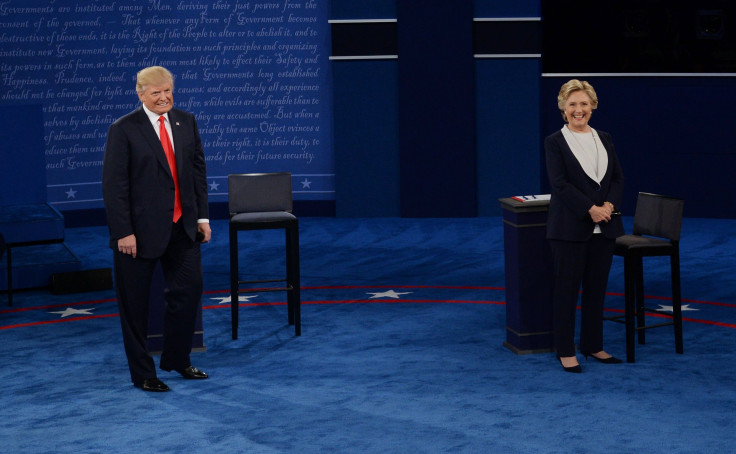How We Watch Presidential Debates 2016: YouTube Gets 124 Million Views To See Clinton vs. Trump II

Television may no longer be the space Americans turn to watch the presidential debates, as millions are increasingly turning to shorter snippets of video, or "highlights," rather than watching the entire 90-minute and volatile affairs.
Video-sharing website YouTube reported 124 million views of content centered around Democrat Hillary Clinton and Republican Donald Trump’s second presidential debate on Sunday, according to Wired, a 40 percent increase when compared to the first showdown last month.
The jump in online viewership may be an explanation for the marked decrease in television ratings for the second debate. According to reports, Clinton vs. Trump II garnered 60 million American viewers across the six major networks that aired the debate, but it was a huge 20 percent drop from the 84 million who watched the first debate, according to Nielsen.
While Wired’s report admits that many of the YouTube views could have come from overseas, it still showed that viewers watched an average of 25 minutes of YouTube’s live stream for a grand total of 2.5 million hours, a total six times higher than in 2012’s election cycle.
Breaking up the debate into highlights, done by both the online arms of television news networks or YouTube users, has clearly allowed American voters to find and access the most contentious moments of the debate in ways no different than catching up on NFL scores. It also allows for parody.
A 91-second clip of Trump and Clinton’s introduction to the debate stage Sunday, accompanied by Bill Medley and Jennifer Warnes classic 1987 song “(I’ve Had) The Time Of My Life,” was the sole YouTube creation by YouTube user “ReChemical” and as of publish has gained more than 767,000 views and went even more viral with tens of millions of views on Facebook.
Among numerous examples, ABC News isolated Clinton and Trump’s response to the opening question regarding demeanor and the combative tone during the first debate. Fox News, meanwhile, highlighted Trump calling his salacious conversation with then- "Access Hollywood" host Billy Bush “locker room” talk, and while accusing Clinton’s husband, former President Bill Clinton, of doing far worse.
And candidates' comments, thanks to YouTube and other social media like Twitter, can be quickly turned back on them with the push of a “send” button. Almost immediately after Trump said he wanted Muslim Americans to report any suspicious activity they see, a furthering of what many have called his anti-Muslim rhetoric throughout the campaign, Twitter users immediately took to the hashtag “#MuslimsReportStuff” after author and Brooklyn College professor Moustafa Bayaoumi tweeted:
I'm a Muslim, and I would like to report a crazy man threatening a woman on a stage in Missouri. #debate
— Moustafa Bayoumi (@BayoumiMoustafa) October 10, 2016
© Copyright IBTimes 2024. All rights reserved.











